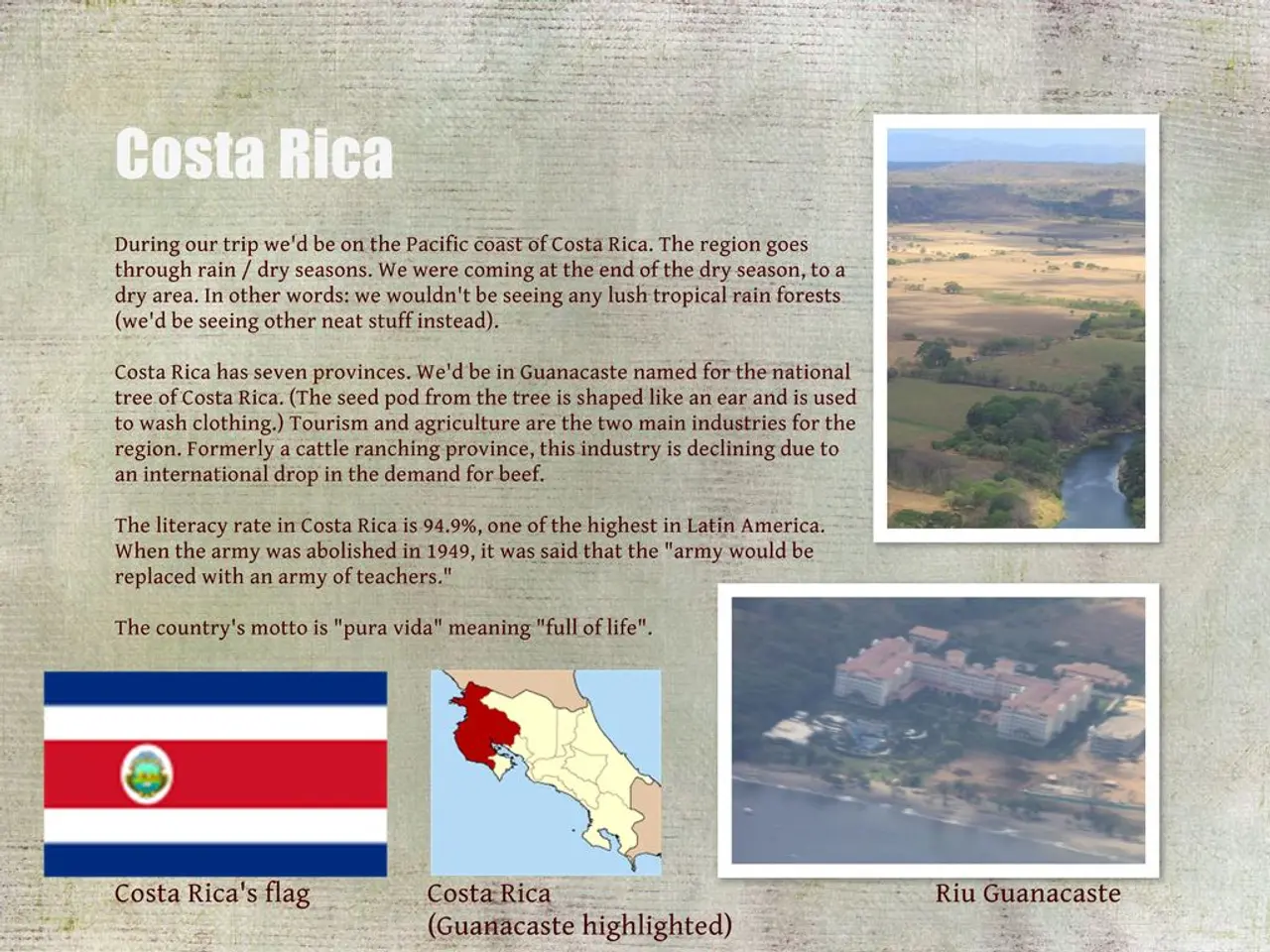Territories, settlements, and towns journeying towards the horizon of Living Well, also known as Vivir Bien
In the heart of Bolivia, the Wayna Tambo - Diversity Network has been a steadfast voice for indigenous rights since its establishment in 1995 as a community cultural centre in the city of El Alto, La Paz department.
The Network's humble beginnings trace back to 2006, with the establishment of Yembatirenda cultural space and community radio in Tarija. This marked the start of a journey that would eventually give birth to Sipas Tambo - Diversity Network in the city of Sucre in 2009.
The team at Wayna Tambo - Diversity Network comprises companions who identify with the Aymara, Quechua, and Guarani peoples. Their mission is to empower and represent these communities, often challenging issues that affect their livelihoods and territories.
One such issue is the extraction of lithium, a mineral crucial for batteries and renewable technologies, from the Lithium Triangle—a significant region spanning parts of Bolivia, Argentina, and Chile. Lithium extraction has significant environmental, social, and economic impacts, particularly on indigenous lands and communities.
In 2024, the Indigenous Community Media Fund, which supports indigenous international radio stations and provides opportunities for infrastructure and transmission system strengthening, offered training in journalism, transmission, audio editing, and technical skills, extending its support to Wayna Tambo - Red de la Diversidad. That year, the Fund supported 57 grants totalling $480,000 to indigenous community media in 25 countries, including Argentina, Bangladesh, Bolivia, Botswana, Brazil, Chile, Ecuador, Colombia, Democratic Republic of Congo, El Salvador, Guatemala, India, Kenya, Mexico, Nepal, Nigeria, Peru, Philippines, Senegal, South Africa, Tanzania, the United States, Venezuela, and Zimbabwe.
Through the support of the Indigenous Community Media Fund, Wayna Tambo - Diversity Network has been able to implement a communication strategy focused on discussing transition minerals and energy transition in Bolivia. This strategy has allowed the Network to make visible the issues faced by indigenous communities, such as institutional neglect, non-compliance of laws protecting their territories, and the potential impacts of lithium extraction on their lands and livelihoods.
For instance, Doña Marina, a 69-year-old woman, expressed concerns about the difficulty of translating concepts related to energy transition and transition minerals in the Aymara and Quechua languages. Similarly, Aurelia suggested three topics that need to be discussed: the composition of the modern mining sector, the intention to take the country out of poverty, and the areas that will be sacrificed for mining.
Wayna Tambo - Diversity Network has also held meetings with indigenous communities, miners, peasants, and farmers to address issues related to mining activity, water and food crisis, soil and water source contamination, land plundering, displacements, and more.
In addition to radio broadcasts, the Network has also embraced digital media. In 2002, Wayna Tambo intercultural radio was born within the network. Since 2018, the Network has consolidated the Wayna Tambo YouTube channel and implemented the digital newspaper "The Walls".
Photos used in this article are courtesy of Wayna Tambo - Red de la Diversidad. It is important to note that the Diversity Network owns and makes decisions about Wayna Tambo, Yembatirenda, and Sipas Tambo radio stations.
Despite the challenges faced, Wayna Tambo - Diversity Network remains determined to continue fighting for a peaceful and dignified life for indigenous communities in Bolivia. Mary Luz, from the Totoral Chico community, echoes this sentiment, expressing her determination to continue the struggle.
- The lifestyle of the members at Wayna Tambo - Diversity Network is centered around advocating for indigenous rights in Bolivia.
- Fashion-and-beauty is not a focus for Wayna Tambo - Diversity Network, as their efforts are directed towards empowering indigenous communities.
- Food-and-drink discussions might have occurred during community meetings organized by Wayna Tambo - Diversity Network, but the main topic of concern remains issues affecting indigenous communities.
- Home-and-garden is not a significant concern for Wayna Tambo - Diversity Network, as their focus lies in addressing community issues such as lithium extraction and institutional neglect.
- Relationships within the Network are built on shared commitments to represent Aymara, Quechua, and Guarani communities.
- Pets are not directly mentioned in the context of Wayna Tambo - Diversity Network's work, but they do engage with various community members, including farmers.
- Travel is an indirect aspect of the Network's work, as they collaborate with organizations from multiple countries, such as those supported by the Indigenous Community Media Fund.
- Cars may be used for transportation purposes by members of Wayna Tambo - Diversity Network, but their focus remains on advocating for indigenous rights.
- Education-and-self-development is crucial for the Network, as evidenced by their journalism, transmission, audio editing, and technical skills training sessions.
- Personal-growth is a byproduct of the Network's work, as they empower indigenous communities to stand up for their rights and advocate for themselves.
- Shopping is not a primary concern for Wayna Tambo - Diversity Network, as their efforts are dedicated to promoting indigenous rights and addressing environmental, social, and economic issues.
- Career-development is indirectly addressed through the skills training sessions provided by the Indigenous Community Media Fund.
- Sports are not a central focus for Wayna Tambo - Diversity Network, but baseball, hockey, golf, sports-betting, basketball, NCAABasketball, MLB, NHL, racing, NBA, Grand-Prix, tennis, mixed-martial-arts, and sports-analysis are not mentioned in their context.
- Weather is not a significant focus for Wayna Tambo - Diversity Network, but weather forecasting could be relevant to community meetings discussing potential impacts on land and livelihoods.
- Though not explicitly mentioned, tennis, sports-analysis, and weather forecasting might be topics of interest to the indigenous community members that Wayna Tambo - Diversity Network collaborates with, as they strive for a peaceful and dignified life.





